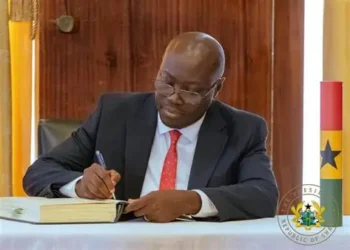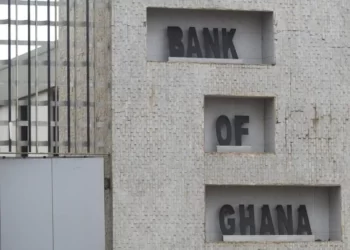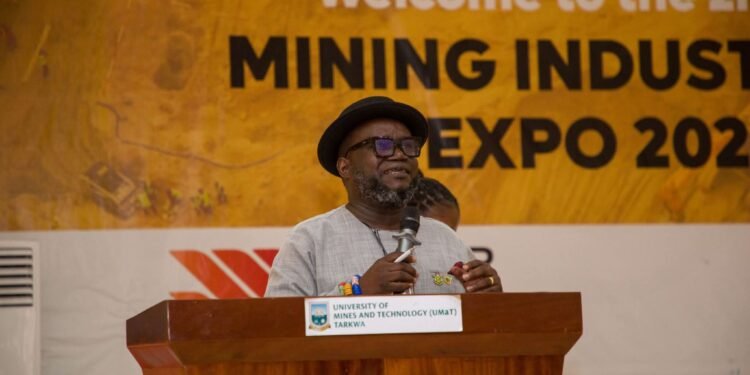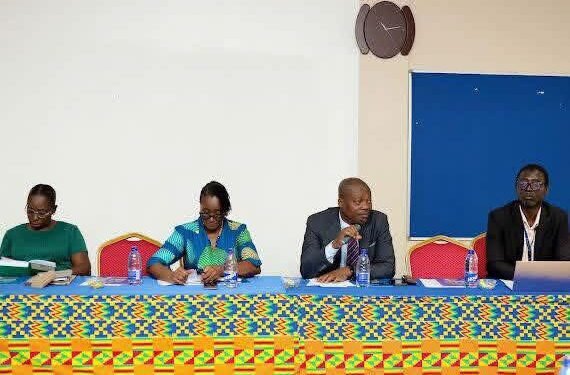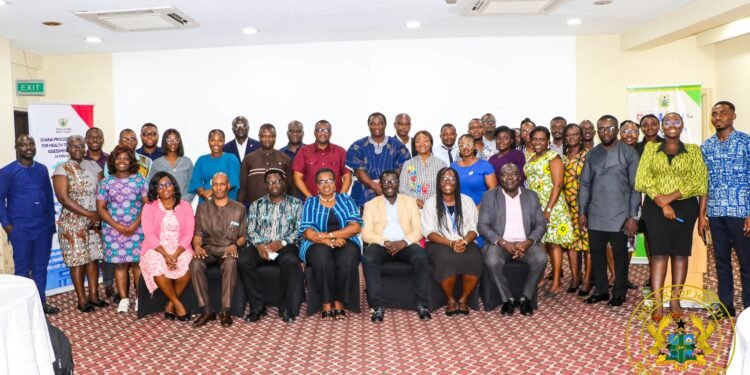Professor Godfred Bokpin, an Economist, has urged the government to invest in the productive sectors of the economy to engineer job-rich growth while maintaining fiscal prudence.
To address the issues of unemployment in Ghana, Prof. Bokpin expects the 2026 Budget to make provision for significant expenditure in job-rich sectors of the economy.
“In terms of spending that can engineer job-rich growth, probably more in the area of agriculture, commercialization, and palm oil, because these sectors are job-heavy. And again, we [Ghana] need to adopt a value-chain approach to all of this.”
Prof. Godfred Bokpin
These sectors have the potential to lay the expansionary basis for the economy, leveraging macroeconomic indicators, alleviating poverty, and utilizing the abundant human resources. He illustrated that in implementing initiatives such as the ‘nkuko nkitikiti,’ all these benefits will be derived.
He further urged that the approach of the productive-sector-development should be based on “a value-chain approach from end to end.”
Addressing Productive Issues
The government is known to be the biggest consumer in many areas in Ghana, according to experts. Therefore, Prof. Bokpin encouraged the government to take active steps to address the current glut being experienced as a result of the productivity surge.

“While we [Ghana] are talking about rice glut and the other produce glut in Ghana, for all you know, the school feeding is struggling to get rice to feed the students in Senior High School. To the extent that we are investing in agriculture, we want to produce more, then we should be putting our mouth there as well.”
Prof. Godfred Bokpin
The current glut situation samples a scenario where the rightly implemented initiatives can yield immense output. This also questions the country’s readiness and capacity to take advantage of such yield. According to Prof. Bokpin, the government needs to reform the fabric, capacity, and orientation of state institutions to be responsive during harvest periods.
He made the point that the government should not use taxpayers’ money to import food for institutions and schools in dire need of food, but should direct the glut of produce to them.
“So, off-takers, security agencies, school feeding – we [the government] should not use our [Ghanaians] taxpayers’ money to buy rice to feed our children in their Senior High School or under the school feeding program. No. Let’s guarantee that if there is an uptick in terms of local production, the state can absorb it.”
Prof. Godfred Bokpin
Prof. Bokpin believes that the Minister of Finance comes bearing good news because “the numbers are trending in the right direction.” However, he quickly cautioned that the government needs to be very careful because the economy is quite fragile.

Closing the Policy Gap
According to Prof. Bokpin, the Ghanaian economy is still on the path of consolidation. He, therefore, pleads for patience from Ghanaians.
“What we call economic transformation will take us [Ghana] about 15 years of doing the right things consistently. Not just four years, and then we backslide. We are just beginning.”
Prof. Godfred Bokpin
He mentioned that the IMF, under the ongoing program, hinted that though the Extended Credit Facility (ECF) covers 36 months (3years), the full economic turnaround is a more complex process dependent on sustained reforms and the ability to absorb external and internal shocks.
Prof. Bokpin called on Dr. Cassiel Ato Forson to close the policy gap in the 2026 Budget. He explained that the current gap between the inflation rate (8.0 percent as of October) and the monetary policy rate (21.5 percent) is too wide; hence, policy consolidation is needed.

He mentioned that “the approach the Central Bank adopted in aggressive stretching of the currency creates these distortions.” Therefore, policy consolidation “will take a while.”
“It [Central Bank approach] doesn’t allow the other rates to trickle down the line because one is quite sharper. We could have spaced it gradually and allowed all the other numbers to trend. But this is what we have done. So, with time, the rates will begin to align.”
Prof. Godfred Bokpin
He declared confidently that he is not expecting the Minister to deviate substantially from the current prudent fiscal policy he is managing. With the amended Public Financial Management Act and the commitment to a primary surplus of 1.5 percent, Ghana will achieve it because of the expenditure cut, he added.
He also mentioned that the debt-to-GDP ratio is projected to decline to about 45 percent by 2034 (currently a little lower than 50 percent). The government should be strategic about the debt obligations and interest payments. Ghana does not have much fiscal space, he declared, and it will take a little while to get there.
“It means that on the part of fiscal consolidation, we need to travel the journey a little while, but then we also need to manage that.”
Prof. Godfred Bokpin
Managing the macroeconomic gains, continuous debt restructuring, fiscal consolidation, economic recovery, addressing productive issues, and leveraging on spending is expected to play in the upcoming Budget.
READ ALSO: Ghana’s Fixed Income Market Powers Through Debt Crisis to GH¢1.2 Trillion Glory







